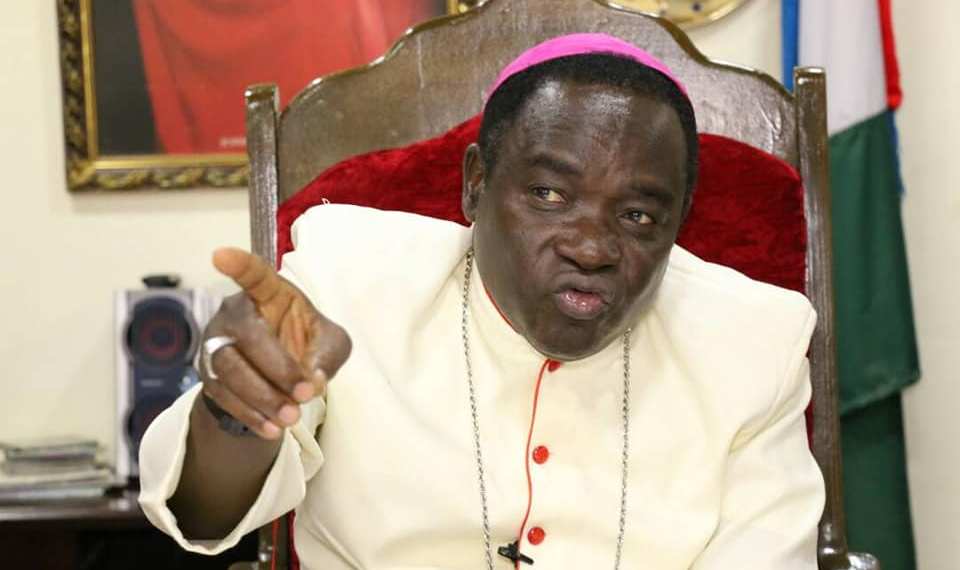- Bishop Mathew Kukah urges President Tinubu to reduce fuel prices, highlighting the severe hunger and hardship faced by Nigerians
- Kukah emphasizes that citizens prioritize tangible improvements over political affiliations, criticizing reliance on spiritualists instead of evidence-based governance
Catholic Bishop of Sokoto Diocese Mathew Hassan Kukah has urged President Bola Ahmed Tinubu and the All Progressives Congress (APC) to reduce the current fuel prices to alleviate Nigerians’ suffering, stating that “there is serious hunger in the land.”
Speaking on Friday in Abuja during the formal unveiling of APC’s Progressive Institute, Kukah called on political leaders to address the hunger and hardship resulting from recent economic policies, including the removal of the oil subsidy and the increase in fuel prices from N617 to N895.
Kukah clarified that while he is not affiliated with any political party, he is politically engaged. He emphasized that Nigerians are less concerned about which party is in power and more focused on leaders who can bring about tangible improvements in their daily lives. He also criticized politicians for relying on spiritualists, urging them to adopt a scientific approach to governance.
“I have always said that I am not a politician but political. I am not a member of the APC. If the Labour Party invites me, I will go; if the PDP invites me, I will also go,” Kukah stated. He added, “One thing I will appeal to politicians is to write your biography so that the younger generation will appreciate the mistakes you have made. A girl was asked, which party are you? APC, LP, or PDP? She said, ‘I am hungry.’ So, we Nigerians are hungry. You have to find a way of reducing the price of fuel.”
He continued, “Unless democracy is anchored on a sound foundation, we will build on sand. I am concerned about the quality of democracy in Nigeria. We need to fix the problem with democracy in Nigeria.”
Kukah commended the APC’s establishment of The Progressive Institute (TPI), describing it as a positive step that could help political leaders adopt better practices. He urged Nigerian politicians to shift from a reliance on spiritualists and ritualists to a more evidence-based and scientific approach to governance.
